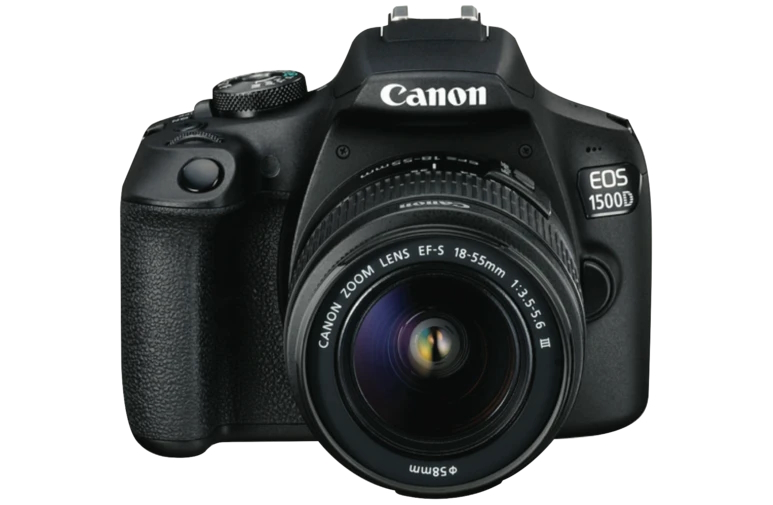
Decoding Excellence What Makes a Great Digital Camera
In an era where capturing moments has become more than just a hobby, choosing a great digital camera can be a crucial decision for both amateur and professional photographers. Whether you’re documenting everyday life, exploring creative photography, or tackling professional assignments, the right camera can significantly enhance the quality of your photos. This article explores the features and specifications that define a great digital camera, helping you make an informed decision for your photographic needs.
Image Quality: The Foundation of a Great Digital Camera
Sensor Size and Resolution
Image quality is the cornerstone of a great digital camera, and it largely depends on the sensor size and resolution:
- Sensor Size: Larger sensors capture more light and detail, offering better image quality and lower noise in low-light conditions. Full-frame and APS-C are popular sizes.
- Resolution: Measured in megapixels, higher resolution allows for larger prints and more detail, but it’s the quality of those pixels that truly matters, not just the quantity.
Lens Compatibility
A camera’s potential is also determined by the lenses it can use:
- Interchangeable Lenses: DSLRs and mirrorless cameras allow you to change lenses to suit different photography styles and needs.
- Lens Quality: High-quality lenses with maximum aperture and optical stabilization contribute significantly to image sharpness and overall photo quality.
Performance: Speed and Accuracy
Autofocus and Shooting Speed
For photographers who shoot sports, wildlife, or other fast-moving subjects, a camera’s performance in terms of autofocus speed and accuracy is paramount.
- Autofocus System: Look for cameras with a high number of autofocus points and advanced tracking capabilities.
- Continuous Shooting Rate: Measures how many photos the camera can take per second, crucial for capturing action without missing a beat.
Usability: Interface and Handling
Ergonomics and Design
A great digital camera should not only take good pictures but also be comfortable to use:
- Body Design: The camera should fit comfortably in your hands, with controls that are easily accessible.
- User Interface: Menus should be intuitive, and the camera should offer customizable buttons and settings for quick adjustments.
Video Capabilities: Beyond Still Photos
High-Quality Video Recording
As video content becomes more popular, the video capabilities of digital cameras have become an important consideration:
- Resolution and Frame Rates: Many cameras now offer 4K video recording and high frame rates for slow-motion effects.
- Autofocus in Video: Continuous and reliable autofocus during video recording is essential for producing high-quality video footage.
Connectivity and Extra Features
Modern Connectivity Options
A great digital camera offers various options to easily share and transfer images:
- Wi-Fi/Bluetooth: Allows for wireless image transfer between the camera and mobile devices or computers.
- GPS: Tags photos with location data, useful for travel photographers.
Choosing Your Camera: A Feature Comparison Table
| Feature | Ideal For | Popular Cameras | Key Benefits |
|---|---|---|---|
| Full-Frame Sensor | Professional Photography | Canon EOS 5D Mark IV, Nikon D850 | Superior image quality, better low-light performance |
| Fast Autofocus | Sports and Wildlife Photography | Sony A9, Canon EOS 1D X Mark III | Quick and accurate focus, better for moving subjects |
| 4K Video | Videographers, Vloggers | Panasonic Lumix GH5, Sony A7S III | High-resolution video, professional-quality results |
| Compact Size | Travel, Everyday Use | Fujifilm X100V, Sony RX100 | Portable, easy to carry |
| Wi-Fi/Bluetooth | Social Media Enthusiasts | Nikon Z50, Canon EOS M50 | Easy sharing and remote control |
Frequently Asked Questions
1. What’s more important, megapixel count or sensor size?
- Sensor size generally has a more significant impact on image quality than megapixel count, especially in terms of low-light performance and dynamic range.
2. Do I need a camera with 4K video capability?
- If you are serious about videography or want future-proof videos, 4K video capability is a great feature. For casual video shooters, Full HD may still be sufficient.
3. Can I use my smartphone instead of a digital camera?
- Smartphones are convenient and capable of casual photography, but digital cameras offer superior image quality, more manual controls, and better performance in low light.
4. What is the advantage of having Wi-Fi in a camera?
- Wi-Fi allows you to wirelessly transfer photos to your smartphone or computer and can enable remote camera control through an app.
5. How do I decide between a DSLR and a mirrorless camera?
- DSLRs typically offer better battery life and more lens options, while mirrorless cameras are lighter, more compact, and often have better video features.
A great digital camera blends high-quality imaging capabilities with user-friendly features, robust performance, and versatile connectivity options. Whether you’re a seasoned photographer or a hobbyist, understanding these key aspects will guide you to a camera that best fits your needs and enhances your photographic journey. Remember, the best camera is the one that not only takes great photos but also inspires you to shoot more and improve your skills.



